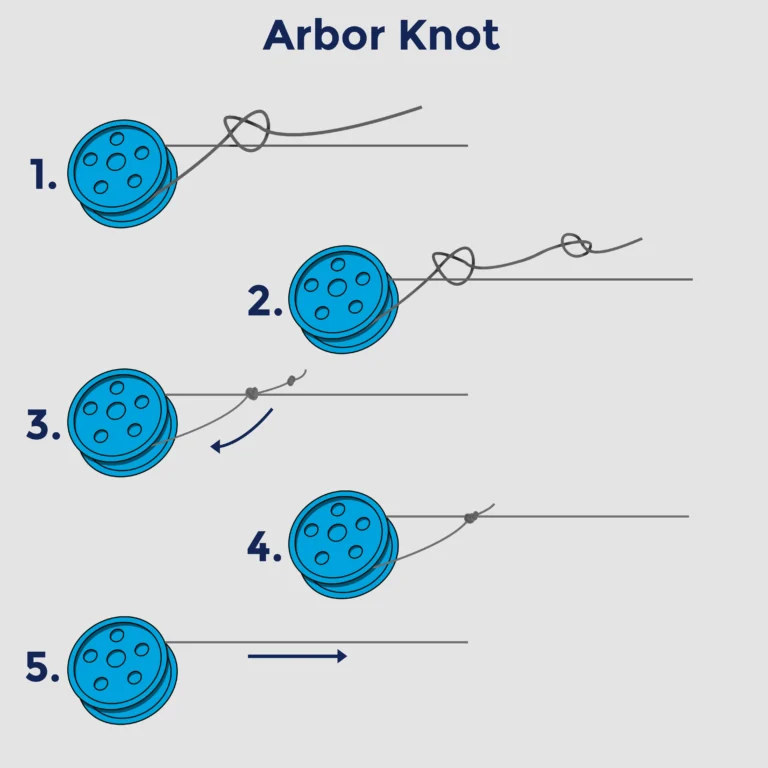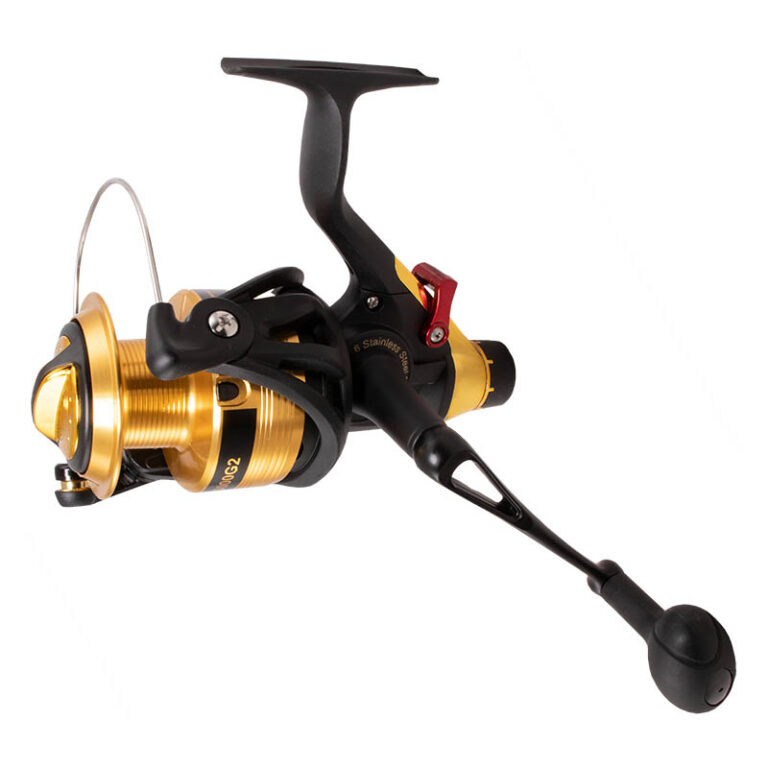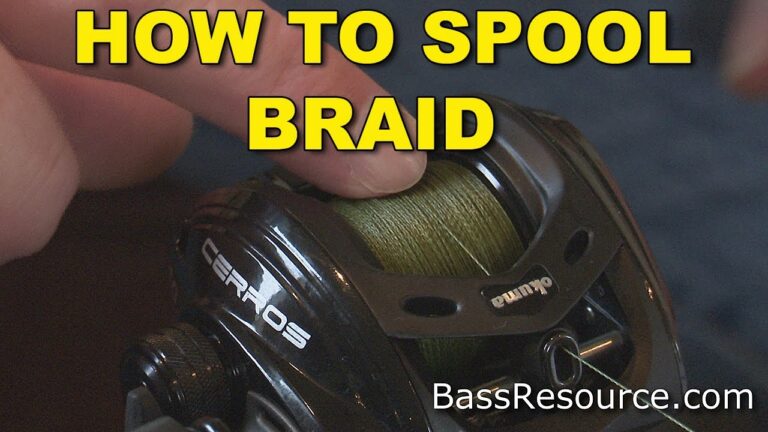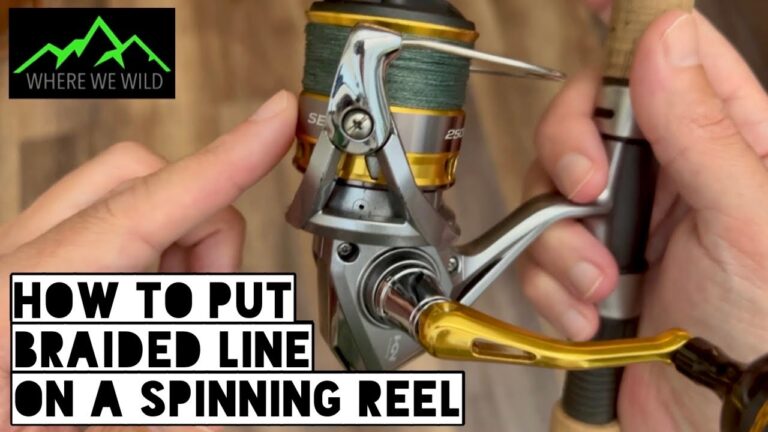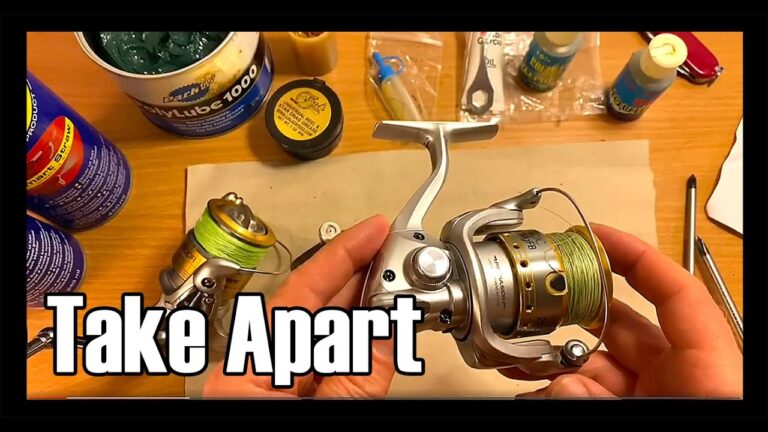How to Spool a Baitcaster Reel
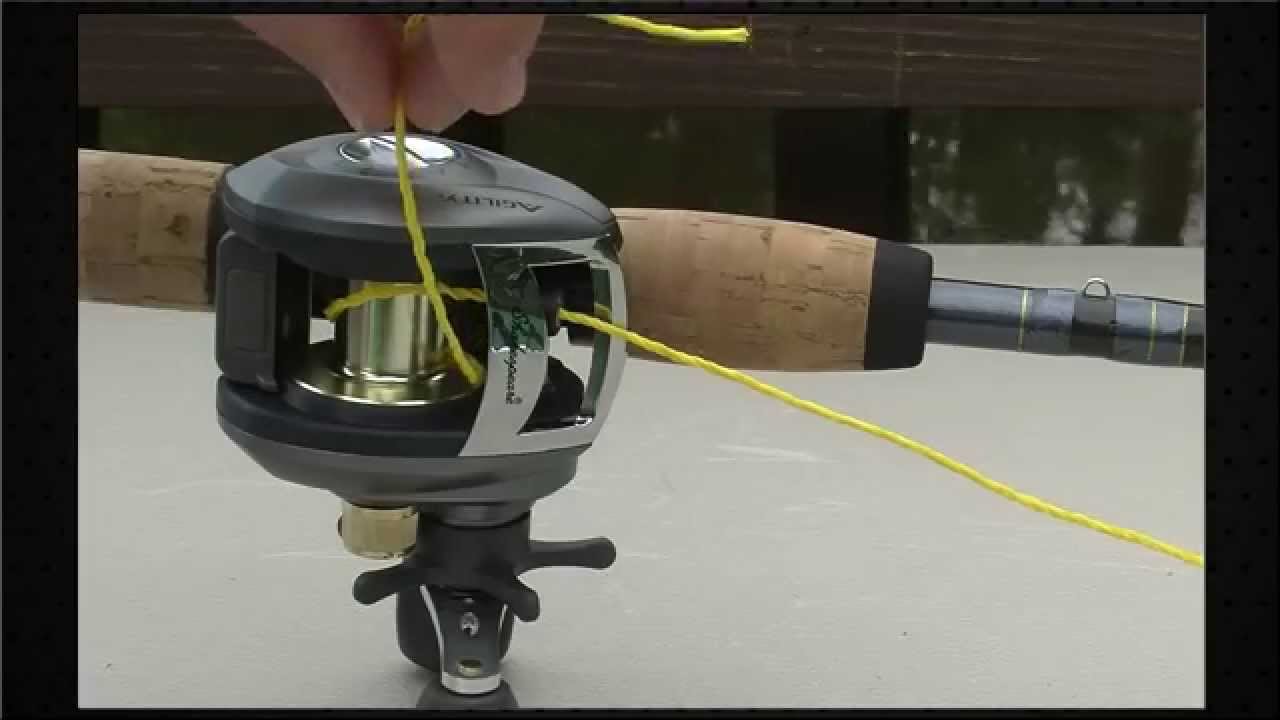
To spool a baitcaster reel, first attach the line to the reel using an arbor knot. Then apply tension and wind the line evenly onto the spool.
Mastering the art of spooling a baitcaster reel is essential for any angler looking to elevate their fishing game. Incorrectly loaded line can lead to annoying tangles and reduce casting distance, impacting your overall experience. Whether you’re gearing up for a freshwater skirmish with bass or a saltwater duel with tarpon, starting on the right foot with a properly spooled baitcaster is key.
This process, though initially daunting, is simple with a bit of practice. By adhering to a few straightforward steps, you’ll have your line loaded with precision, ensuring smoother casts and, ultimately, a more productive day on the water. Remember, a correctly spooled reel can make a significant difference in your fishing efficiency and success.
The Art Of Spooling A Baitcaster Reel
Selecting the right line for your baitcaster reel is pivotal. You want a line that’s strong and durable. Consider the fish species and water conditions. Monofilament, braided, and fluorocarbon lines offer distinct benefits. Monofilament is user-friendly and cost-effective, great for beginners. Braided lines boast exceptional strength and smaller diameters, for those targeting bigger fish. Fluorocarbon lines are almost invisible underwater, perfect for clear waters.
Gather your tools and materials before starting. You will need:
- A clean, flat workspace
- Your baitcaster reel and rod
- The chosen fishing line
- A pair of scissors or line cutters
- Tape or a rubber band
Ensure you have enough line, typically around 100-150 yards, depending on reel size. Double check your reel’s line capacity. This information is often found on the reel itself or in the manual.
Preparing The Baitcaster Reel
Before spooling your baitcaster reel, it’s crucial to make sure it’s clean and well-maintained. A dirty reel can impair performance and reduce the lifespan of your gear. Use a soft cloth and gentle cleaner to wipe down the reel. Pay attention to removing any grime or debris that could hinder its movement.
Once your reel sparkles, it’s time to secure it to the rod. Make sure that the reel sits comfortably and securely in its position. Tighten the reel seat just enough to hold the reel firmly. Avoid over-tightening, as it can damage the rod or the reel’s foot. A well-secured reel ensures better control and improves your fishing accuracy.
Threading The Line
Feeding Line Through the Guides begins with finding the reel’s guide holes. Take the end of the fishing line and pass it through each guide hole. Start from the one farthest from the reel and work towards the reel. Ensure the line flows smoothly and without twists.
For Attaching Line to the Spool, open the baitcaster’s front cover to expose the spool. Tie the line around the spool using an Arbor knot. After knotting, cut off the excess line close to the knot. Place the cover back on. Make sure the line sits evenly across the spool.

Credit: kastking.com
The Spooling Process
Proper tension is key while spooling a baitcaster reel. To achieve ideal tension, apply pressure on the line. Use a cloth or your fingers. Keep the pressure steady as the reel turns. This prevents line twists and kinks.
Next, aim to fill the reel evenly. Move the line side to side across the spool. This ensures a smooth and uniform line lay. It is crucial for optimal casting and to prevent ‘digging in’ during a catch.
Finishing Touches
Trimming and securing the line is vital to prevent snags and ensure a clean cast. Grab scissors or a line cutter and trim the excess line close to the knot. Aim for about one-eighth of an inch. This length prevents line tangles while keeping the knot secure. To avoid slippage, you can apply a tiny drop of superglue to the knot. Let it dry before proceeding.
Setting the drag system comes next, and it’s important for managing fish fights. Turn the star drag wheel by your handle. Listen for clicks. Tighten it for bigger fish and loosen for smaller ones. The ideal setting lets the line pull out with steady pressure.

Credit: kastking.com
Troubleshooting Common Issues
Dealing with line twist and tangles on a baitcaster can be frustrating. To prevent these issues, ensure the line is loaded correctly. The spool must rotate the same way the reel does. During spooling, keep tension on the line to avoid loops that lead to tangles.
For line slippage, it’s key to secure the line firmly to the spool. A small piece of tape can also help to prevent the line from slipping. If slippage occurs, it’s often due to a lack of tension or improper anchoring of the line.

Credit: www.youtube.com
Frequently Asked Questions Of How To Spool A Baitcaster Reel
How Do You Spool A Baitcasting Reel?
To spool a baitcasting reel, mount the reel, thread the line through the guides, and tie it to the spool. Ensure the line feeds in the same direction it comes off the spool. Maintain tension and slowly wind the line onto the reel until full.
How Do You Put New Line On A Baitcasting Reel?
Start by threading the line through the rod guides. Tie the line to the spool with an arbor knot. Hold the line tight with slight tension, and evenly wind the line onto the spool by turning the handle. Trim any excess line after filling the spool.
How Much Should You Spool A Baitcaster?
Fill your baitcaster until there’s an eighth of an inch gap from the line to the edge of the spool. Overfilling can cause tangles and reduce casting accuracy.
What’s The Best Way To Put Braided Line On A Baitcaster?
Secure your baitcasting reel to the rod and thread the braided line through the guides. Attach the line to the spool using an arbor knot. Maintain tension on the line while reeling uniformly to avoid line digging. Fill the spool to about 1/8 inch from the rim for optimal performance.
Conclusion
Mastering the art of spooling a baitcaster reel is a game-changer for any angler. With practice, patience, and the right technique, you’ll enjoy precision casting and fewer tangles. Embrace each step we’ve discussed, and your next fishing adventure could yield impressive results.
Tight lines and happy casting!
